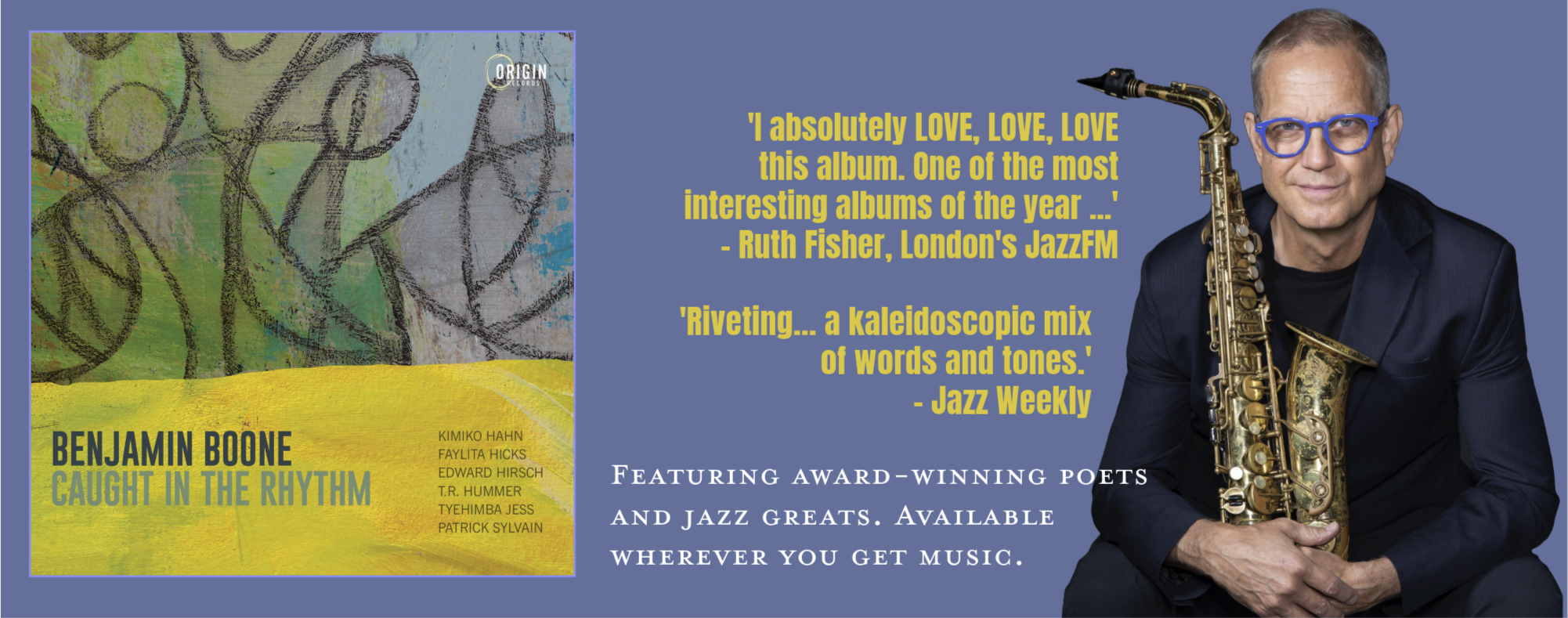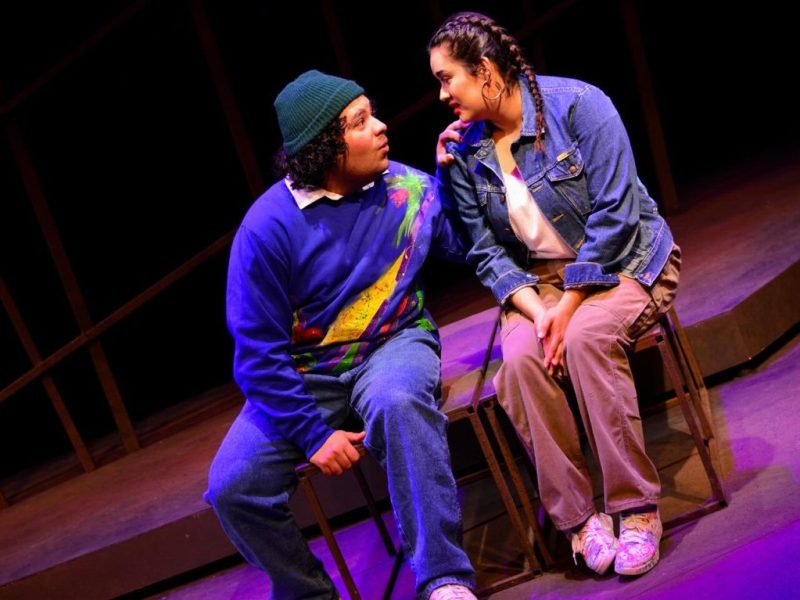Fresno State’s Anthony Cody vies for university honor
Fresno, a poetry town?
You bet.
Those out of the loop might respond with a smirk, but if you’re in the know, you understand how fertile the central San Joaquin Valley is when it comes to the literary arts. From two recent national poets laureate to a thriving creative writing program at Fresno State, poetry feels like it’s baked into our surroundings.
One of those thriving poets is Anthony Cody. Friday is a special day for him. As Dean’s Graduate Medalist for the College of Arts and Humanities, he’s one of nine contenders for the biggest honor of all: University Graduate Medalist. (For a recap of all the honorees, here’s the Fresno State rundown.) If coronavirus hadn’t swept the world, Cody and his fellow honorees would have been feted in person. Losing the ritual of commencement is yet another blow in these turbulent times.
The Munro Review has no paywall but is financially supported by readers who believe in its non-profit mission of bringing professional arts journalism to the central San Joaquin Valley. You can help by signing up for a monthly recurring paid membership or make a one-time donation of as little as $3. All memberships and donations are tax-deductible.
Therefore, to celebrate Cody’s hard work and love for the arts, I offer the following interview. While this year’s commencement won’t be in physical form, it’s more important than ever to salute Cody — and all graduates — for giving a troubled world a cause for optimism.
Q: In a “normal” year, the announcement of the University Graduate Medalist would come at the official graduation ceremony. How will the winner be revealed this year?
A: In the midst of the pandemic, and the stay-at-home order, the official announcement will be virtual on Friday, May 15, 2020 in the afternoon. This was also the case for the College of Arts and Humanities Deans’ Medal announcement as well. While the in person fanfare is missing, I am grateful to share these joys virtually, with potentially, a larger audience, via social media.
Q: You are in distinguished company with the deans’ medalists from the other colleges. Reading their bios, how does it make you feel to be included in such an esteemed group?
A: I have really enjoyed reading about the work and accomplishments of all the Deans’ Medalists. One of the things that strikes me is how, like so much of the labor, love, and creativity from all Fresno State students, each of us has been building from within our own fields and asking more of both ourselves and academics. Given the current pandemic, as well as climate change, I am left with knowing that each of us will push forward to help make the valley, and the globe, a better world for the future generations.

Q: Tell us about your book “Borderland Apocrypha,” which won the 2018 Omnidawn Open Book Prize.
A: “Borderland Apocrypha” is technically the first thesis I wrote as a Master of Fine Arts student in the Creative Writing Program at Fresno State. I had the privilege to take some time off and focus on writing that manuscript. The book is my debut poetry collection, and is centered around the history of the southwest as it relates to Mexican and Mexican-American lynchings following the Treaty of Guadalupe Hidalgo in 1848 and my own explorations of familial history in being of both Mexican and Irish descent.
While the research of the lynchings started as something separate from my own experiences, as I worked through drafting the collection, I found that the erasures, traumas, and bigotry continue to be pervasive in our society and connect to my own identity and family. In terms of style, the work and form is often experimental, and at times large scale. The opening sequence of the collection is eight cascading poems that are 17 inches wide by 5 inches tall, which I am grateful for Omnidawn’s care in finding creative solutions in fitting the work into a 9-by-6-inch book format.
Q: Is there one (short) poem from the book (or any other of your poems) you could share with us?
Finding a short poem is a tough task for me. I have started to see my work proliferate in size, scale, and shape. The work itself from my work in progress has shifted into scrolls, sound art, and mural-sized, installation-ready poems.
However, I do have a poem that I wrote for my friend, the late Pos L. Moua. He passed away last month, after a four-year battle with cancer. Valley poetry, and Hmong poetry, are better because of his existence, but the loss is immense. Even in this moment, I am unsure if I can begin to grieve the passing of my friend.

‘Sequoia Sempervirens’ has a distinctive layout.
Q: How did you get involved in the Hmong American Writers’ Circle?
A: Fresno poetry stories always seem to be long stories. In the early 2000s, the poet, and, funny enough, the 2012 Deans’ Medalist, Andre Yang, and I became friends in an undergraduate course at Fresno State titled “P.E. for Kids.” We became close, but the one thing we never talked about was our own respective interests in poetry. Five years after we met, he noticed that I posted a poem on MySpace and asked if I was interested in coming to a workshop that he helped run. Serendipitously, my partner was also being recruited by the group’s founder Burlee Vang. Here, I found community that nurtured and supported me as a writer, while I worked for community-based organizations or local government that very often had me working well beyond the 40-hour work week. And most importantly, help support a burgeoning literary movement with only a handful of Hmong poets in America who are actively publishing. This included co-editing the anthology “How Do I Begin?: A Hmong American Literary Anthology.”
Without that initial community, and lifelong friends with the members of Hmong American Writers’ Circle, “Borderland Apocrypha” does not happen and so much of my creative work never would have manifested.
Q: Just reading the following sentence in your Dean’s Medalist bio makes me tired: “He serves as communications manager for CantoMundo, a national Latinx poetry organization; as a poet and artist in the Laureate Lab Visual Wordist Studio with Juan Felipe Herrera; as an assistant poetry editor with Noemi Press; and as an editorial assistant in poetry with Boom California.” How do you fit everything in?
A: Re-reading what I do, it does sound gargantuan. This is related to the aforementioned question. I have spent a lot of much of my twenties and much of my thirties in service to a variety of projects, side gigs, and volunteering. (Shout out to my first boss out of undergrad, Cathy Caples, who helped nurture in me a spirit of service to others with Catholic Charities, and later HandsOn Central California.) In the latter half of my thirties, I made the difficult decision to streamline a lot of my work to focus more on poetry. This started small, and steadily increased into the full slate that it is now. However, I have found that because the activities are related to my passion and art form, it seems less like work and more like surrounding myself with a community that not only helps nurture my poetry, but also helps create space for others to explore poetry and amplify their own work and voice.
Q: We’re living in weird, scary times. Why is poetry important?
A: Poetry helps us see the reality that is obscured, very often in plain sight. As a society, we exist in a state of seeking truth, while also believing in systems that actively work, both in the present and historically, to silence and limit the dissemination of truth. However, with poetry, I find myself diving into the reading, writing and research, and peeling back the faces that we have forgotten and the events that provide us with a clearer interrogation of our true humanity. This was the case with “Borderland Apocrypha.” The more I wrote and researched the collection, the less it felt related to 1848, but rather, and unfortunately, the year 2020. The question becomes, how can we fashion a better universe if we are unable to understand our own individual and collective flaws? I believe that in this given moment, poetry is helping us find our tenderness, our own capacities, and ultimately, a way to see more clearly on the path ahead.

Cody, right, in Fresno State’s Laureate Lab Visual Wordist Studio.
Q: What are your plans after graduation?
A: I officially turned in my second thesis manuscript yesterday afternoon, an experimental collection centered around Climate Change and the Dust Bowl. With that being said, post-MFA life has now officially arrived. In the immediate future, work on re-imagining what a book tour for “Borderland Apocrypha” can look like in the present day. Like many authors during the pandemic, my book tour has disappeared; and, with completing my graduation requirements, I have not been able to provide the book the care and love it deserves to promote it effectively.
The bigger-picture focus is to find a consistent paying job, or series of jobs, related to teaching and editing in the arts and in poetry. My time in the Laureate Lab has allowed me to see and understand my own potential in mentorship and education within poetry in practice, and I want to attempt to pursue that further. All of this while continuing to revise and pitch my second collection for publication, and starting on a third writing project. I have some research to do, which I have started upon, but need more time for it to manifest more clearly before writing. The shortest answer, stay busy with poetry.
Q: Anything else you’d like to share?
A: My time and friendship with Juan Felipe Herrera, U.S. Poet Laureate Emeritus, in Fresno State’s Laureate Lab Visual Wordist Studio, has been life-altering and led me to creative new avenues of experimental work and art that a kid raised off Belmont, immediately off the eastbound Chestnut Avenue 180 Freeway offramp, could have imagined. However, leading the space and running workshops has given me tremendous excitement for a new era of Fresno Poets and poetics.
We have seen this with recent collections that have garnered national acclaim and prizes from Sara Borjas, David Campos, Joseph Rios, Steven Sanchez, and Mai Der Vang, and it is my belief that this is a sign of the future. This is not as much the end of Philip Levine and the narrative poet, but the immense possibilities in poetry when we nurture, read, and support a more diverse group of poets. I am particularly excited for the future of the poets who have come through the Laureate Lab in recent years and are willing to take risks in their writing that continually surprise and astound me, specifically, Rodolfo Avelar, Hermelinda Hernandez, Gaoyong Yang-Vang, J.J. Hernandez, Paul Sanchez, Mariah Bosch, Javier A. Lopez, Erika Ceballos, Esmeralda Gamez, Aidan Castro, Tony Vang, and the late Mireyda “Mia” Barraza Martinez.
Which is all to say, the ‘Poetry Capital of the World’ continues to flourish.









